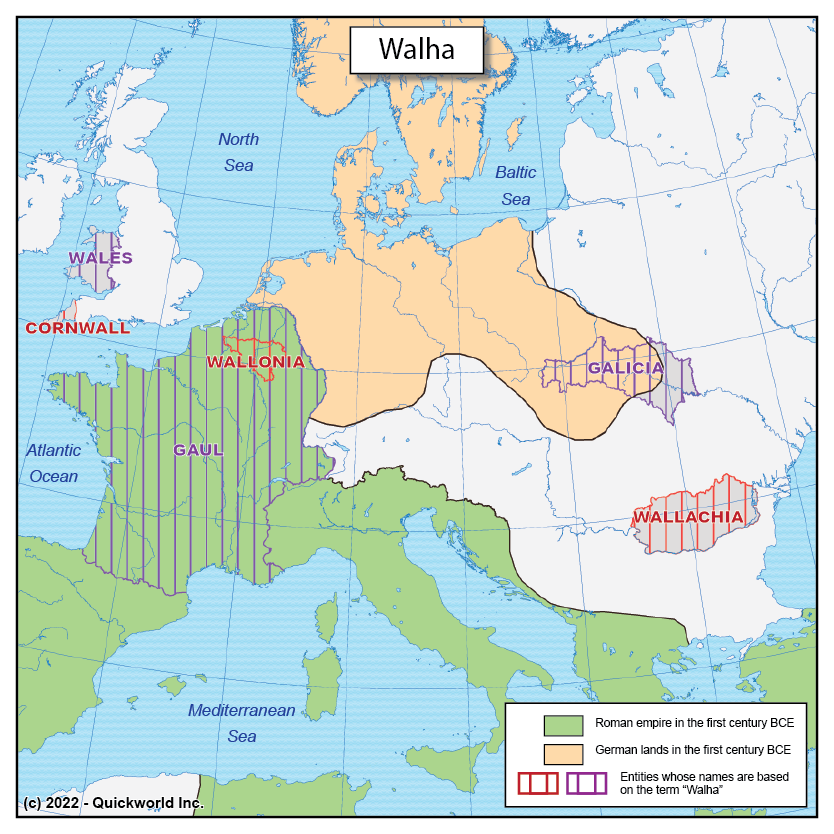Our "What's in a Name" Series focuses on the word "Walha", a proto-Germanic word that means "foreign".
About 2000 years ago, Germanic tribes were settled throughout Scandinavia, Jutland, and what constitutes the northern half of modern Germany. The non-German ethnic groups were commonly referred to by Germans as "Walha" or a derivation of that word, a fact that has major consequences in modern toponymy.
Julius Caesar mentions tribes of Western Europe who called themselves Celts, while Romans called them Gauls – a word directly taken from the Germanic root. When the Saxons invaded Great Britain, they also named the Brittonic tribes after "Walha", which gives the modern Wales and Cornwall. Likewise, Wallonia (French-speaking Belgium) in the West, Galicia and Wallachia in the East are iterations of the German denomination that prevailed in modern English and other languages. Many smaller regions on the borders of Germanic lands bears names directly influenced by Walha.
Walha


